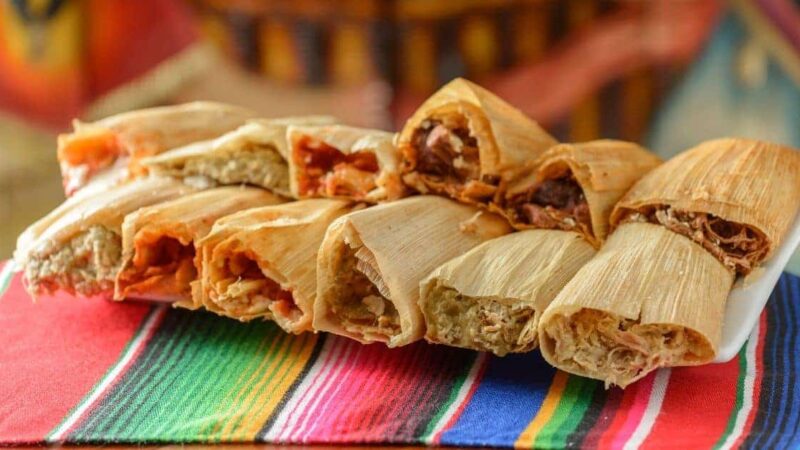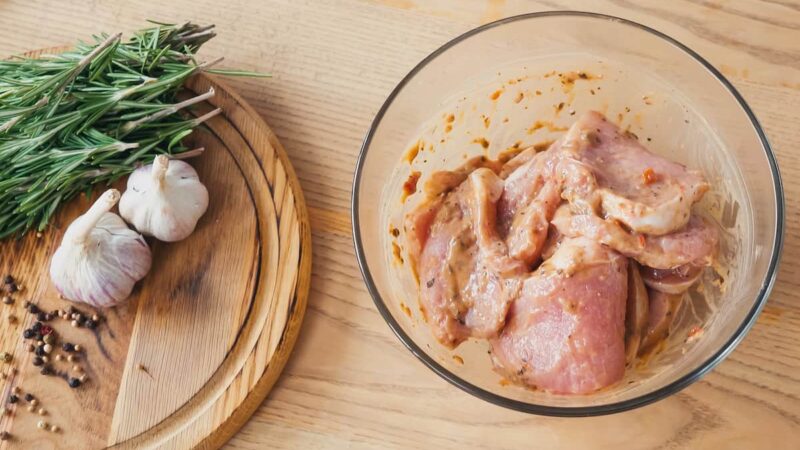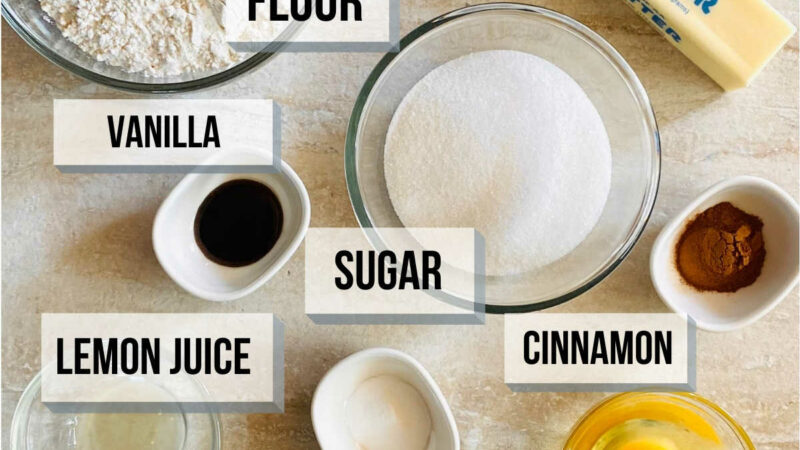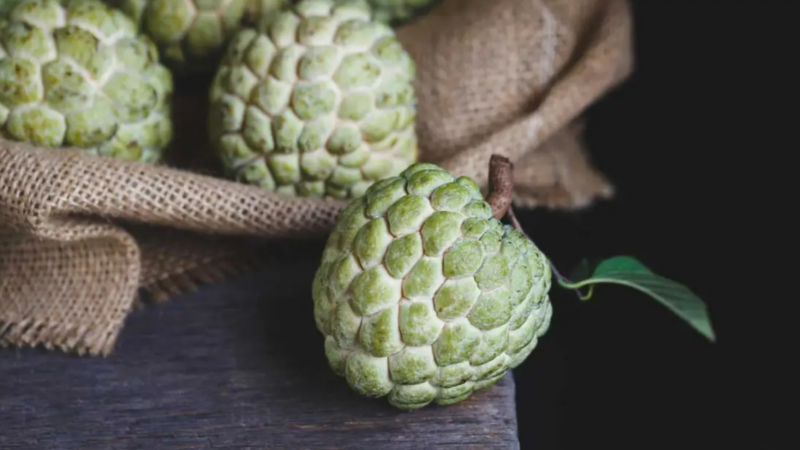Does Chai Have Caffeine? Unveiling the Truth Behind Your Favorite Cup of Spiced Tea
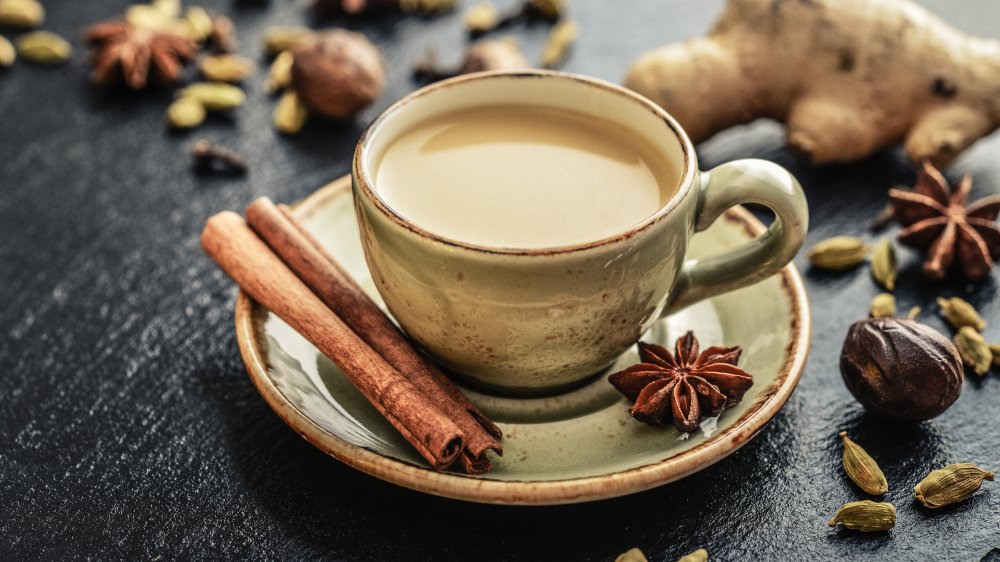
Does Chai Have Caffeine – Few beverages evoke the warmth and comfort of a well-brewed cup of Chai. As the aromatic blend of spices and black tea wafts through the air, it’s no wonder that Chai has become a beloved drink for countless tea enthusiasts worldwide. But as we sip on this delightful elixir, one question often lingers in our minds: Does Chai have caffeine?
While it’s true that Chai is primarily associated with black tea, renowned for its caffeine content, the answer to this seemingly simple query is not as straightforward as it might seem. Join us on a journey to unravel the mysteries of Chai, exploring its origins, ingredients, and the presence of caffeine as we discover whether your favourite cup of spiced tea is a hidden energy source or a comforting caffeine-free indulgence.
What is chai tea?
Chai tea, often simply referred to as “chai,” is a traditional beverage that originated in India and has since gained popularity worldwide. The word “chai” actually means “tea” in Hindi, so when we say “chai tea,” we are essentially saying “tea.”
Chai is a unique blend of black tea, aromatic spices, milk, and sweeteners, creating a rich and flavorful concoction. The spices used in Chai can vary, but common ingredients include cardamom, cinnamon, ginger, cloves, and black peppercorns. Depending on regional preferences and personal taste, some variations might also include star anise, fennel seeds, or nutmeg.
To prepare Chai, the spices and tea leaves are simmered in water to extract their flavours fully. Milk and sweeteners, like sugar or honey, are then added to create a creamy and comforting texture. The combination of robust black tea, aromatic spices, and creamy milk makes Chai a delightful balance of flavours with a warming and invigorating quality that is loved by many.
Chai has not only become a staple beverage in Indian culture but has also been embraced by people worldwide, leading to various interpretations and adaptions that suit different palates. Whether enjoyed at home, in a café or while travelling, Chai is an inviting and comforting drink that offers a taste of tradition and a delightful sensory experience.
How much caffeine does chai tea have?
The caffeine content in chai tea can vary on the type of tea used, the brewing method, and the specific recipe. As Chai is typically made with black tea, the caffeine content in Chai will primarily be derived from the black tea leaves.
On average, an 8-ounce cup of chai tea made with black tea may contain anywhere from 40 to 70 milligrams of caffeine. However, these values can fluctuate based on factors such as the type of black tea used, the steeping time, and the tea-to-water ratio.
To put this into perspective, a typical cup of coffee contains around 95 milligrams of caffeine per 8-ounce serving. So, compared to coffee, chai tea generally contains moderate caffeine.
Suppose you are sensitive to caffeine or prefer to avoid it. In that case, caffeine-free alternatives are available, such as “herbal chai” or “rooibos chai,” where the black tea is replaced with caffeine-free herbal teas like rooibos or decaffeinated black tea. These options provide the same delightful blend of spices without the caffeine kick.
As caffeine content can vary, it’s always a good idea to check the label or inquire with the tea provider if you want a specific caffeine level in your chai tea. Additionally, individual tolerance to caffeine can vary, so some people might be more sensitive to its effects than others.
How Much Caffeine Does Chai Have in Comparison to Other Types of Tea?
The caffeine content in chai tea, as mentioned earlier, primarily depends on the type of tea used as its base. Let’s compare the caffeine levels in Chai to other common types of tea:
- Black Tea (Chai Base): As Chai is typically made with black tea, its caffeine content is similar to that of regular black tea. On average, an 8-ounce cup of black tea contains around 40 to 70 milligrams of caffeine.
- Green Tea: Green tea generally contains less caffeine than black tea. An 8-ounce cup of green tea typically contains about 20 to 45 milligrams of caffeine, although this can vary depending on the specific variety and brewing method.
- White Tea: White tea usually contains the least caffeine than traditional teas. An 8-ounce white tea typically contains around 15 to 30 milligrams of caffeine.
- Oolong Tea: Oolong tea falls somewhere between green and black tea regarding caffeine content. An 8-ounce cup of oolong tea typically contains 30 to 50 milligrams of caffeine.
- Herbal Tea: Herbal teas, such as chamomile, peppermint, or rooibos, are naturally caffeine-free. They are made from various herbs, spices, fruits, and flowers but do not contain any tea leaves from the Camellia sinensis plant, which is where caffeine is found.
- Decaffeinated Tea: Decaffeinated teas are regular teas that have undergone a process to remove most of the caffeine content. The amount of caffeine left in decaffeinated tea can vary, but it is usually significantly lower than in regular tea. The actual caffeine content depends on the type of tea and the decaffeination method used.
In summary, when comparing the caffeine content, Chai made with black tea falls in the same range as regular black tea. Green tea has less caffeine, while white tea typically has the least among the traditional teas. Herbal teas and decaffeinated teas, including herbal Chai or decaf chai, are caffeine-free options for those looking to avoid or limit caffeine consumption.
How Much Chai Is Safe to Drink?
The safety of chai consumption depends on various factors, including individual tolerance to caffeine, overall health, and the ingredients used in the chai preparation. Here are some general guidelines to consider:
1. Caffeine Sensitivity: Chai made with black tea contains caffeine, and individual sensitivity to caffeine can vary. For most healthy adults, moderate caffeine intake, which is typically defined as 400 milligrams per day (about 4 to 5 cups of Chai made with black tea), is considered safe for most people. However, some individuals may be more sensitive to caffeine and may experience side effects such as jitteriness, increased heart rate, or sleep disturbances with lower caffeine intake.
2. Pregnancy and Breastfeeding: Pregnant and breastfeeding individuals are generally advised to limit their caffeine intake. The recommended caffeine intake during pregnancy is usually about 200 milligrams daily (2 cups of Chai made with black tea) or less.
3. Health Conditions: If you have certain health conditions, such as acid reflux, heart issues, anxiety disorders, or caffeine sensitivity, it’s best to consult with a healthcare professional before consuming Chai or any other caffeinated beverages.
4. Herbal Chai and Decaf Chai: If you want to avoid caffeine altogether, consider opting for herbal Chai or decaffeinated Chai. Herbal Chai is made with caffeine-free herbal teas, while decaf chai uses decaffeinated black tea. These alternatives provide a delightful blend of spices without the caffeine content.
5. Moderation and Balance: As with any beverage, moderation is key. Drinking Chai in moderation as part of a balanced diet is generally safe for most people.
6. Quality of Ingredients: Pay attention to the quality of the ingredients used in your Chai. High-quality teas and fresh spices will enhance the flavour and overall experience of the drink.
Remember that individual responses to caffeine and other substances can vary, and it’s always a good idea to listen to your body and adjust accordingly. If you have any health concerns or questions about your chai consumption, it’s best to seek advice from a healthcare professional.
Read More –What Is A Mushroom Compost? Complete Guide
Conclusion:
In conclusion, chai tea is a delightful and aromatic beverage rooted in Indian culture and has become beloved worldwide. Chai is traditionally made with black tea, which contains caffeine. As a result, Chai does have caffeine, and the amount of caffeine in each cup can vary depending on the type of black tea used and the brewing process. On average, an 8-ounce cup of Chai made with black tea may contain anywhere from 40 to 70 milligrams of caffeine.
However, caffeine-free alternatives, such as herbal Chai or decaf chai, use caffeine-free herbal teas or decaffeinated black tea to create the same spiced and flavorful experience without the caffeine kick. As with any caffeinated beverage, it’s essential to consume Chai in moderation, consider individual caffeine sensitivity, and consult a healthcare professional if you have specific health concerns.
FAQs – Does Chai Have Caffeine?
Is Chai made with black tea?
Yes, traditional Chai is made with black tea leaves as its base, which contributes to the caffeine content of the beverage.
How much caffeine does Chai have?
An 8-ounce cup of Chai with black tea typically contains around 40 to 70 milligrams of caffeine. However, the caffeine content can vary based on factors such as the type of black tea used and the brewing method.
Is there a caffeine-free version of Chai?
Yes, there are caffeine-free alternatives to traditional Chai. Herbal Chai is made with caffeine-free herbal teas, while decaf chai uses decaffeinated black tea, offering the same spiced flavour without caffeine.
Is it safe to drink Chai every day?
For most healthy adults, moderate chai consumption (about 2 to 4 cups per day) is generally considered safe. However, individual caffeine sensitivity and health conditions should be taken into account.
Can pregnant women drink Chai?
Pregnant women are advised to limit their caffeine intake, including Chai. A safe caffeine intake during pregnancy is generally around 200 milligrams per day.
Read More –3 Oz of Chicken: Complete Guide 2023
